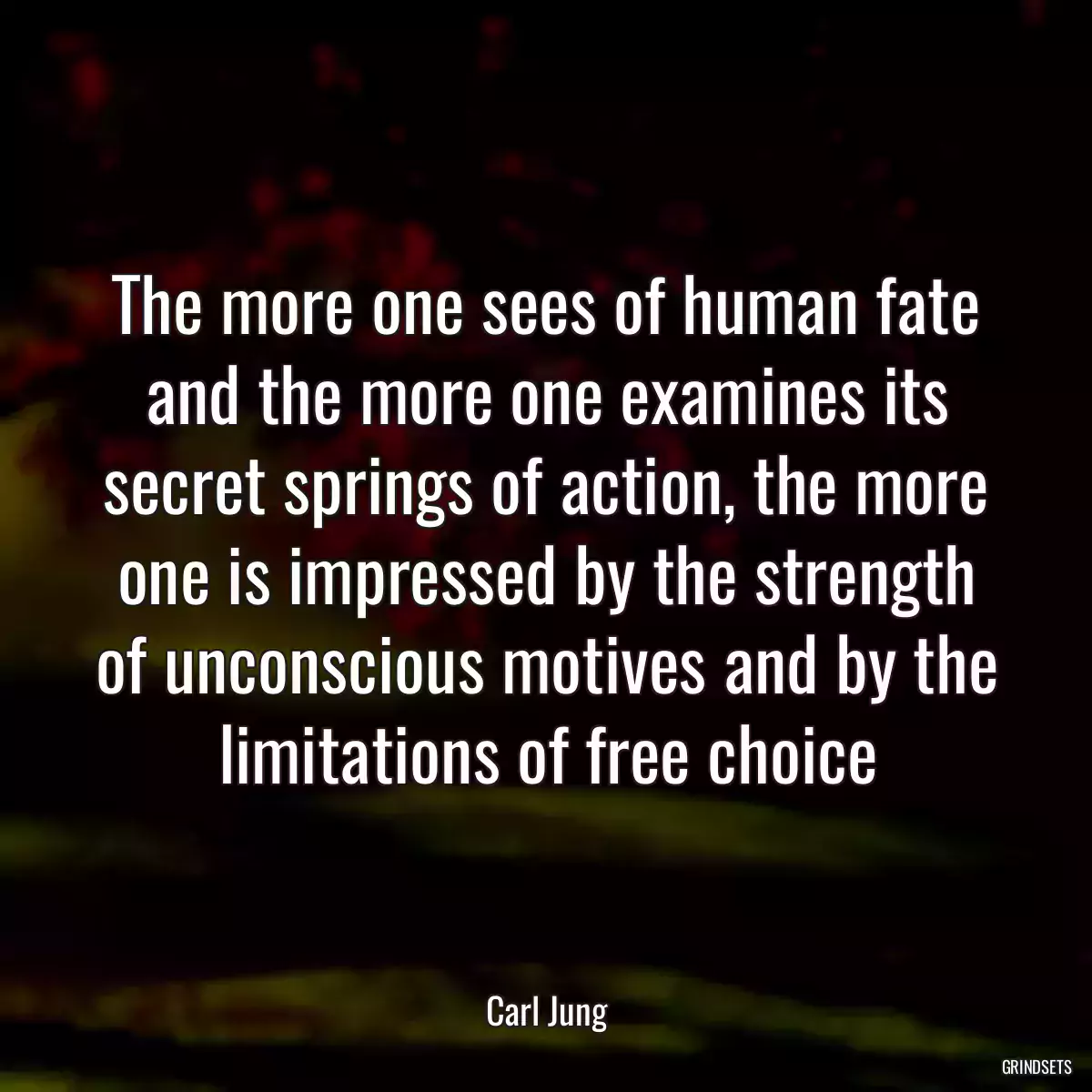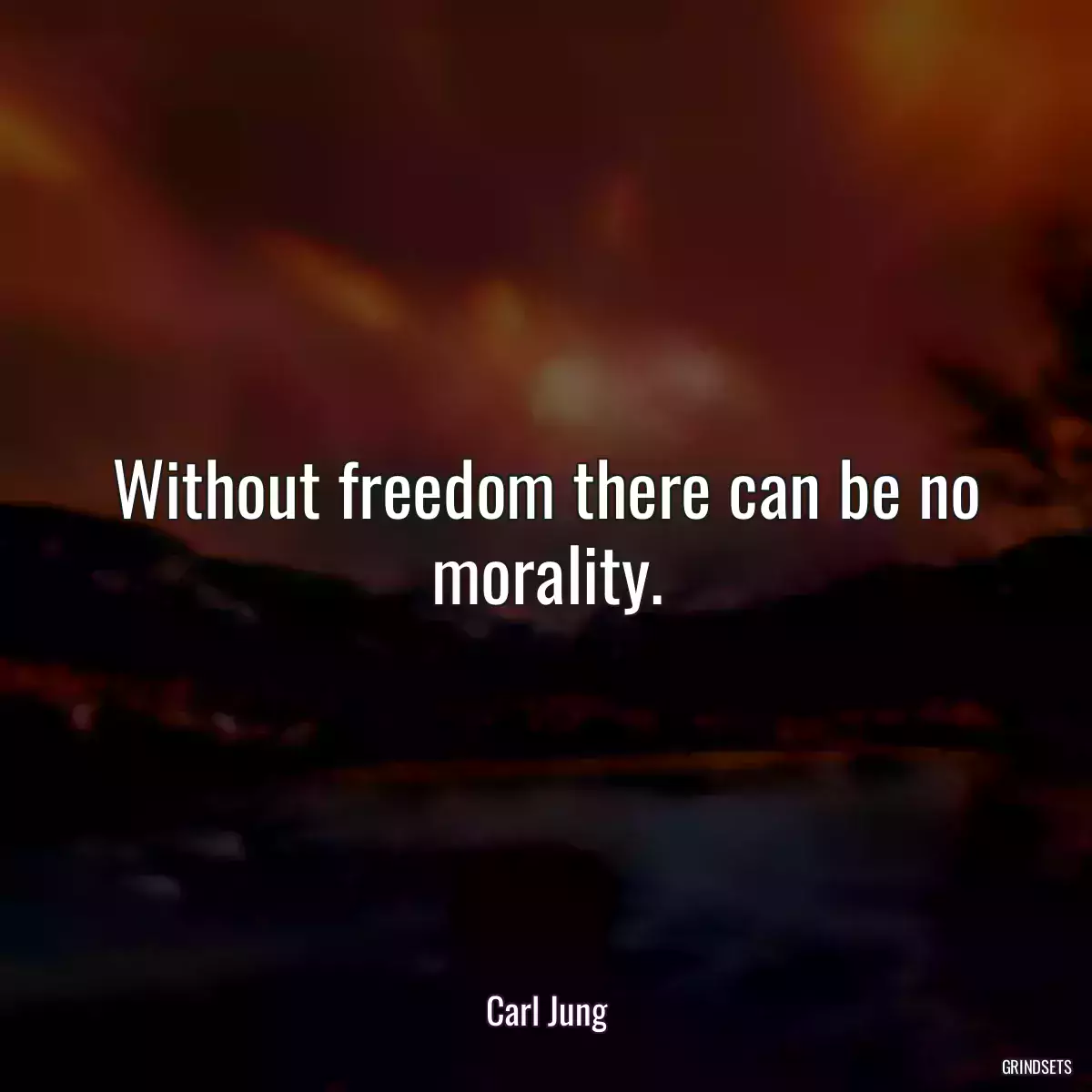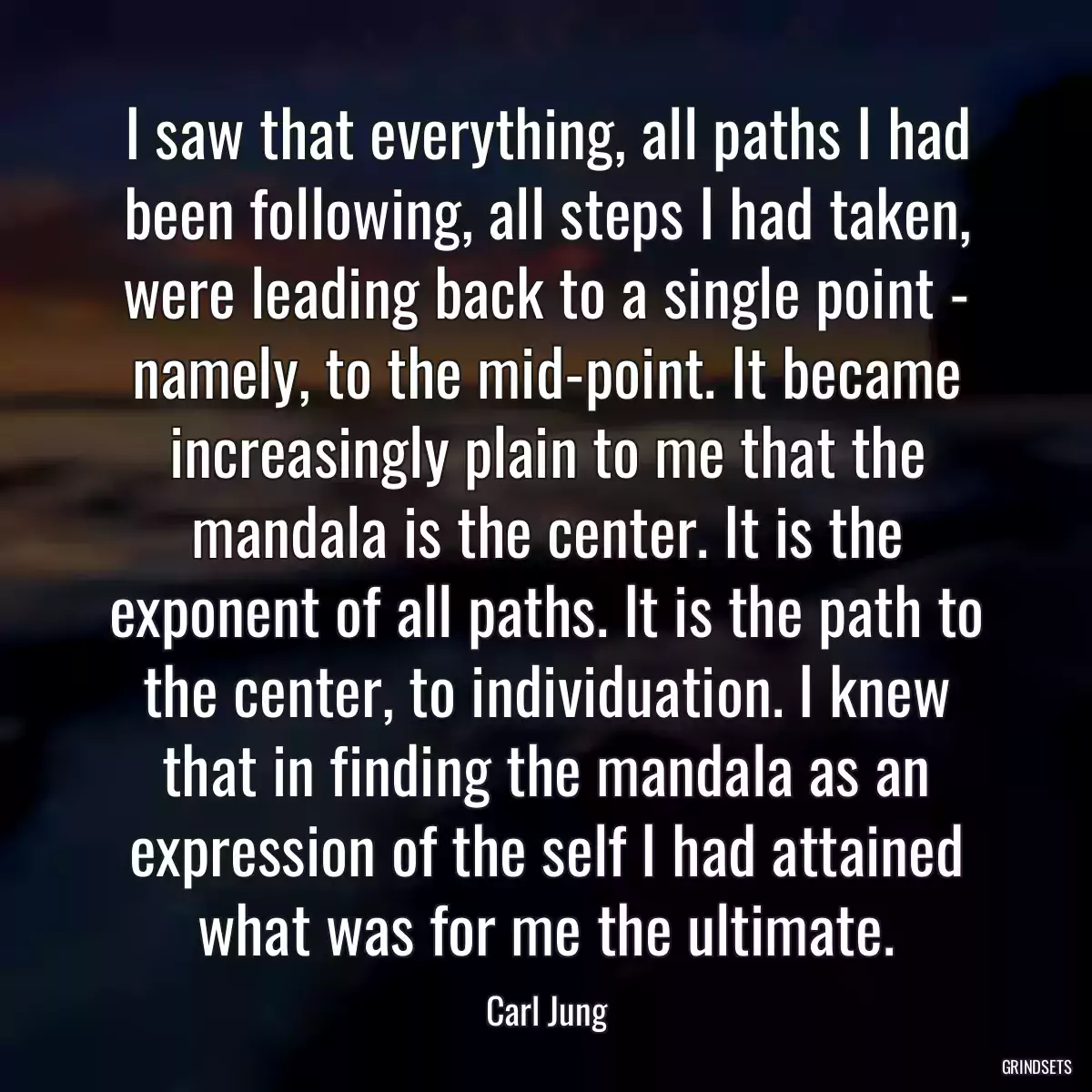
Quotes Carl Jung - page 6
Find dozens of Carl Jung with images to copy and share.

We know that the wildest and most moving dramas are played not in the theatre but in the hearts of ordinary men and women.
The artist's life cannot be otherwise than full of conflicts, for two forces are at war within him [or her]-on the one hand, the common human longing for happiness, satisfaction and security in life, and on the other a ruthless passion for creation which may go so far as to override every personal desire ... There are hardly any exceptions to the rule that a person must pay dearly for the divine gift of creative fire.
The need for mythic statements is satisfied when we frame a view of the world which adequately explains the meaning of human existence in the cosmos, a view which springs from our psychic wholeness, from the co-operation between conscious and unconscious. Meaninglessness inhibits fullness of life and is therefore equivalent to illness. Meaning makes a great many things endurable - perhaps everything.
You may also like
The artist is not a person endowed with free will who seeks his own ends, but one who allows it to realize its supreme purpose through him.
Art is a kind of innate drive that seizes a human being and makes him its instrument. The artist is not a person endowed with free will who seeks his own ends, but one who allows art to realize its purpose through him. As a human being he may have moods and a will and personal aims, but as an artist he is "man" in a higher sense— he is "collective man"— one who carries and shapes the unconscious, psychic forms of mankind.
...it seemed to me I was living in an insane asylum of my own making. I wnt about with all these fantastic figures: centaurs, nymphs, satyrs, gods and goddesses, as though they were patients and I was analyzing them. I read a Greek or Negro myth as if a lunatic were telling me his anamnesis.
No one can flatter himself that he is immune to the spirit of his own epoch, or even that he possesses a full understanding of it. Irrespective of our conscious convictions, each one of us, without exception, being a particle of the general mass, is somewhere attached to, colored by, or even undermined by the spirit which goes through the mass. Freedom stretches only as far as the limits of our consciousness.
You are what you do, not what you say you'll do.

Nobody, as long as he moves about among the chaotic currents of life, is without trouble.
We do not know whether Hitler is going to found a new Islam. He is already on the way; he is like Muhammad.
Hitler is a shy and friendly man with artistic tastes and gifts.
It is only our deeds that reveal who we are.
The utter failure came at the Crucifixion in the tragic words, 'My God, my God, why hast thou forsaken me?' If you want to understand the full tragedy of those words you must realize what they meant: Christ saw that his whole life, devoted to the truth according to his best conviction, had been a terrible illusion. He had lived it to the full absolutely sincerely, he had made his honest experiment, but it was nevertheless a compensation. On the cross his mission deserted him. But because he had lived so fully and devotedly he won through to the Resurrection body.
It is only through the psyche that we can establish that God acts upon us, but we are unable to distinguish whether these actions emanate from God or from the unconscious. We cannot tell whether God and the unconscious are two different entities. Both are border-line concepts for transcendental contents. But empirically it can be established, with a sufficient degree of probability, that there is in the unconscious an archetype of wholeness.
There are as many archetypes as there are typical situations in life. Endless repetition has engraved these experiences into our psychic constitution, not in the forms of images filled with content, but at first only as forms without content, representing merely the possibility of a certain type of perception and action.
Thanks to the acuteness of his mind, he saw through the poverty of philosophical and Gnostic knowledge, and contemptuously rejected it.
You may also like

I saw that everything, all paths I had been following, all steps I had taken, were leading back to a single point - namely, to the mid-point. It became increasingly plain to me that the mandala is the center. It is the exponent of all paths. It is the path to the center, to individuation. I knew that in finding the mandala as an expression of the self I had attained what was for me the ultimate.